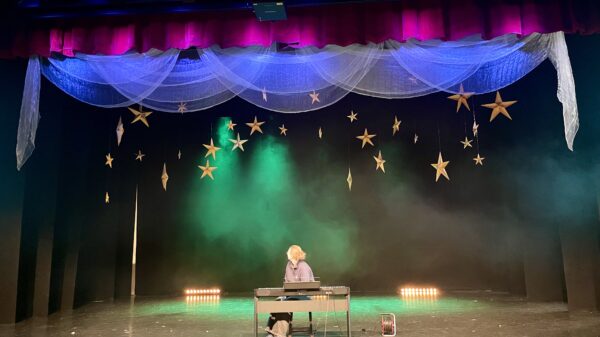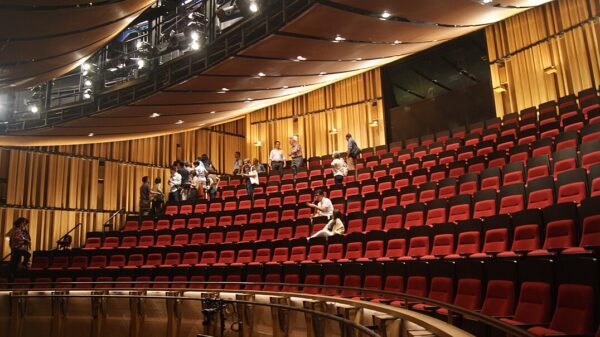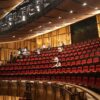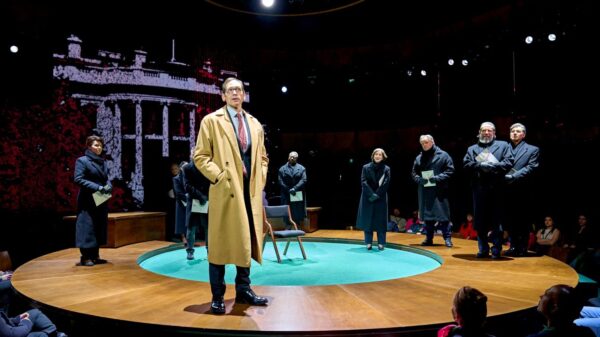Staff writer Aleesha Naqvi shines a light on how getting involved with King’s performing arts societies provides a great outlet besides your studies, regardless of previous experience.
People are often intimidated by the performing arts, thinking they aren’t skilled enough to contribute to King’s many theatre societies.
There is a place for everyone in the arts.
Fast-paced shows and gruelling tech weeks can be stressful, but the experience teaches valuable life skills, including organisation, problem-solving, and perseverance. These will aid you in any profession and make you a more well-rounded person. King’s Tech Crew (KTC) founder Ellen Page says that you “don’t have to be talented. Just hardworking, kind, and willing to learn.” She believes that she “never feels more competent or confident than when a show is going well.”

Becoming a better student
I relate to Ellen’s sentiments; I do my best work academically while in the throes of working on a show. I asked a few KTC members about how the society improved their mental health, and received overwhelmingly positive responses.
University is challenging, and it can help your productivity to focus on something other than your degree. One member, Delia, told Roar about her experience: “Theatre is the only thing that could both excite me and calm me down. It releases my academic anxiety.”
One study found that students who participated in the arts improved not only their confidence and social skills, but also demonstrated improvements in academic performance. Millie S. mentioned how KTC gave her “permission to make art again, which always helps me clear my head and just feel better mentally.”
Additionally, as authors Hetland and Winner point out in their book ‘Studio Thinking’, arts education can help develop creative problem-solving, critical thinking and emotional intelligence. Responses from KTC members heavily echo this, with Will B. saying that, “Without it, I didn’t really do anything extracurricular, or anything that would let me meet people outside of my course. It’s given me a physical thing to do with my hands that people enjoy the output of.”

On the whole, participation in the performing arts not only enhances one’s creative skills and mental health but also allows students to manage stress better, something I can attest to. I have been faced with many issues during shows before, and solving them makes it much easier for me to stay calm while facing my real-life problems. A university show may seem like relatively low stakes, but when you are backstage, the pressure is on. Staying calm while tensions are rising is an invaluable skill that will make you not just a better student, but a better person.
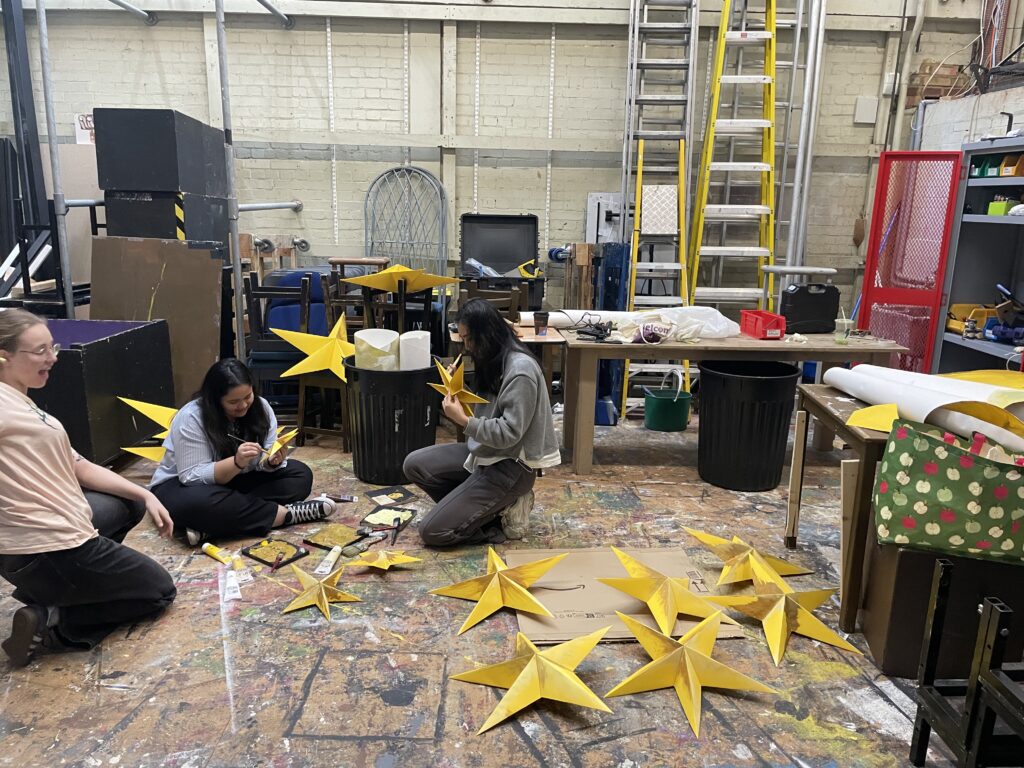
Everyone is Welcome
The performing arts do not just welcome traditionally creative people; there are many other skillsets we need, such as carpentry. This is a shameless call to anyone who knows carpentry skills to please join, because I am no good with a drill. Or a saw. There are just so many reasons to join the arts: making friends, being creative, improving your CV, having a showmance, potentially misusing a drill, etc.
However, you’re allowed to do something just because it’s fun. I spent most of my life carefully planning my extracurriculars to assess how they would be perceived on a college application or LinkedIn profile. For me, theatre was the best of both worlds; it provided me with a plethora of interview material about problem-solving and critical thinking, and was also the most fun I have ever had.
“People who need people, are the luckiest people in the world” – Barbra Streisand
(If you are interested in theatre, storytelling, stage management, lighting design, sound design, costumes, prop-making, set-building, etc, KTC would love to have you.)





